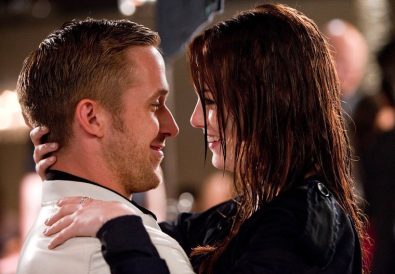Today I woke up to learn that Hugh Hefner died. At 91, he’d lived a full, controversial, and hotly-debated life, and, regardless of what your opinion of him was, you absolutely had one.
Death, while the only real constant, is strange.
I don’t think many of us know how to deal with it. When we find out that someone we all know about or whose work meant a lot or who we didn’t like or who we didn’t care about or who we loved and whose loss has devastated us, we turn into the weirdest versions of ourselves. We want to eulogize, to pay tribute, to push back against, to joke. We insert our own narratives into the space now lacking that of the deceased’s, making their death about us while trying to convince everybody else to care or why not to. For all our practice, we are terribly ill-equipped to handle the end of a person’s life. Mainly because death is terrible, and we’re desperate to have some control over it, so we take to Twitter to micromanage the reception. Which is fine, that’s part of our process now, and soon we’ll all have 280 characters in which to remember someone (heaven help us all).
The thing is, death is personal. What someone meant to you does not mean the same to another person. What someone represented to you does not represent the same to another person. A public figure’s place in our lives is subjective. Our relationship to them is conditioned by our years of life experience and our triumphs and our tragedies and the things we’ve learned and the things we’ve intentionally forgotten. Our relationship to them is our relationship to them. It is personal and layered and complex and weird and baffling because most of us don’t meet the heroes (or villains) we end up paying tribute to. But they play a role in our lives so significant that when they die, we have to say something. Our worlds look different without them, whatever that means.
But death is terrible and inconvenient in almost every capacity. We’re awkward at funerals, unsure of where to put our feelings so that they’re not so on display. Or worse, we lead with them when it isn’t appropriate, projecting our emotions onto relative strangers who don’t know why we’re getting so worked up over a photo collage. We avoid eye contact, make too much eye contact, hug, don’t hug, joke, feel bad for joking, eat too much, don’t eat anything, and then find ourselves weeping in public because that specific loss is so loaded: it’s someone you’ll miss, someone who meant a lot, someone you hardly know but holy shit they remind you so fucking much of your grandma or grandpa, someone you’re honouring because it’s polite and should you even be here? We’re disasters. And incredibly ill-equipped to handle death, because we take someone’s loss so personally that talking about it gets either glib or grim or inappropriate or overwhelming.
And then a famous person dies, and we put everything we’re feeling into that revelation and mourn or celebrate or not care at all in ways that make us combative or very emotional or cold-seeming or, or, or. Even though we’re just trying to make sense of a thing that’s always coming and always lurking, and now it’s taken a person who’s familiar and we need to speak or think or read or honour or condemn because we can’t just keep sitting here, we have to do something. So we eulogize because it’s the thing we can do. We critique because no one should get off scot-free (and death does not exempt you from criticism). We feel sad because goodbyes are sad, and it feels bizarre to exist in a realm where someone you knew isn’t there anymore. We make death personal because that’s what death does best: it makes someone’s grand finale all about you. Which is why I say you mourn however-the-hell you want. You’re exercising the last bit of control over mortality you have left.
At least you’re not audibly sobbing at a stranger’s close-friends-and-family-only-please funeral. Or maybe you are — who am I to say how to grieve.










